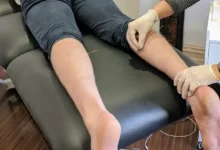
How to Know if Your Wisdom Teeth Are Coming In
Did you know that 5 million Americans get their wisdom teeth removed each year?
Wisdom teeth can cause problems like tooth decay and gum infections. Yet wisdom teeth have been around as long as we have, and in ancient times allowed people to chew and digest plants and other food.
So, have you ever wondered how to know if your wisdom teeth are coming in? Keep reading this guide to learn all about wisdom teeth and what to expect if you need them removed.
Table of Contents
What Are Wisdom Teeth?
Your teeth go through many different changes during your lifetime, from baby teeth to adult teeth, to wisdom teeth.
Wisdom teeth appear between 17 and 21 and are also referred to as your third molars. Generally, wisdom teeth don’t serve a specific purpose other than being a pair of extra molars on each side of the back of your mouth.
Wisdom teeth help grind food, but today our diets consist of many soft foods. And studies show we lack vitamin K2 in our diets today, which is responsible for jaw development. This lack of jaw development is one of the main reasons wisdom teeth do not have the space they used to have.
How to Know if Your Wisdom Teeth Are Coming In
When you’re looking for the first signs of wisdom teeth coming in, pay close attention to your mouth for signs such as:
- Jaw pain
- Bleeding gums
- Swollen and tender gums
- A bad taste in your mouth
- Difficulty with opening your mouth
Swollen and tender gum tissue is one of the first signs you’ll experience. You might notice this discomfort on one side of your mouth or both sides. As you brush your teeth, you might also notice swelling along the gumlines.
Headaches
Other symptoms of wisdom teeth coming in include headaches. If you have a wisdom tooth trapped under your gums, it can lead to a build-up of pressure. This pressure can trigger frequent headaches.
Infection
You also might notice an infection in your gums. As your wisdom tooth begins to erupt, the roots can sometimes be in an awkward position. This positioning can cause your tooth to emerge slowly and unevenly.
This leaves an opening between your tooth and gum line, making it easy for food to become trapped. Even with brushing and flossing, you can still get a severe infection if the problem isn’t corrected.
Impacted Wisdom Teeth
Impacted wisdom teeth occur when you don’t have enough room in your mouth for them to emerge normally. As a result, you have wisdom teeth with some parts visible or never breaking through the gums at all.
Impacted wisdom teeth can lead to pain and damage to other teeth. They are also harder to clean properly, making them more susceptible to tooth decay. Symptoms of impacted wisdom teeth include:
- Jaw pain
- Bad breath
- Red and swollen gums
- Difficulty eating
- Crowding of teeth that are nearby
- Difficulty flossing
You’re more likely to have impacted wisdom teeth if you’re between the ages of 17 and 25 and have a small jaw structure.
Your dentist will usually recommend that they be removed to prevent future dental problems. Impacted wisdom teeth are easily detected by an examination and an x-ray of your mouth.
Wisdom Teeth Removal
If you need your wisdom teeth removed, your dentist can give you an idea of what to expect.
How easily your wisdom teeth can be extracted depends on their development and overall position. If your wisdom tooth is fully through your gum, it’s easy to remove, just like any other tooth.
However, if your wisdom tooth is impacted or stuck in your jawbone, the extraction will be more complicated. Often this means the tooth will have to be taken out in sections rather than one piece.
In these cases, it’s better to consult with an oral surgeon. When choosing an oral surgeon, make sure you choose one with experience that provides a calm and comfortable environment, such as aspiresurgical.net.
What to Expect
Before your teeth are removed, the teeth and gum tissue are numbed with an anesthetic. If the removal is complicated, your oral surgeon may decide on sedation too.
Sedation can include nitrous oxide, commonly known as “laughing gas,” or intravenous medications to relax you.
Your recovery time depends on how difficult the extraction was and if your wisdom teeth were impacted. Typically in the first 24 hours, you can expect:
Bleeding
You can expect some bleeding to occur several hours after your tooth extraction. You’ll need to keep a clean piece of gauze over your empty tooth socket and bite firmly to apply pressure.
You’ll also want to avoid rinsing, spitting, or drinking through a straw for at least 24 hours. Avoiding hot liquids such as coffee is also important as it can dislodge the formed clot.
Facial Swelling
You also can expect some facial swelling around your jaw and cheek area. To minimize this, ice the area for 10 minutes, followed by a 20-minute break. Doing this within the first 24 hours greatly reduces swelling and pain.
Medications
You can also take over-the-counter pain medication such as Tylenol or Advil for minor pain. Your oral surgeon may also prescribe more potent pain relievers if you need them. You may also be prescribed antibiotics to take for any active infections.
Recovery
The entire healing process can take a few weeks to a few months following the extraction. Usually, within the first one to two weeks, you’ll be comfortable enough to use your jaw normally.
Take Care of Your Wisdom Teeth
Now that you know how to know if your wisdom teeth are coming in, you can better take care of your dental health!
Don’t be afraid to schedule an appointment with your dentist to see where your wisdom teeth stand.
Are you ready to learn more? Then check out our blog to read about health, lifestyle, and education tips to improve your life today!








